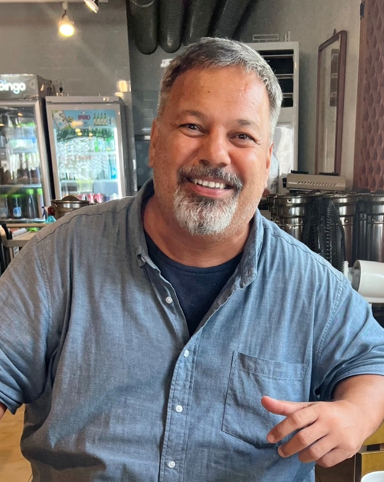
Jim Rayphand
IT’S not often I get to experience (or rather witness and ponder) in real-time the significance and living example of the famous idiom to, “Give a man a fish…,” but I found myself doing exactly that during a traffic jam one recent Saturday morning on the south side of the island. As it happened, our governor’s office funded two separate, but related “give-away” programs which coincidentally rolled out on the same day. Both programs offered a means for people to eat, but one for a day and the other potentially for a lifetime.
More specifically, one program was giving away a free bag of rice to anybody who showed up with no expectation of anything in return. The other offered seats in a half-day workshop on how to grow food given “a commitment of at least 6 months minimum to ensure that every participant is able to apply the skills they learn through the program” with no promise of anything other than shared knowledge in return. Sadly, thousands of people lined up for hours to get the free bag of rice whereas a mere twenty or so of us opted for the learning session on ‘Backyard Gardening.’ Those of us who opted to join the workshop were pleasantly surprised to be rewarded with fast-growing vegetable seeds and bags of dirt (literally) for our time and for the privilege of mentorship from experienced farmers. I found myself held up in traffic from people jockeying for a place in line for a bag of rice on my way to get in line for bags of dirt. In a bold statement about the obvious, another participant in the program said that the dirt will translate a continuous flow of food while the bag of rice will likely be gone in a day. For emphasis, give a man food and he’ll eat for a day. Teach him how to grow food and he’ll eat for a lifetime.
The good news is that upon a re-run of the same gardening program, some time after the first installment, more people joined — between 50 and 100 people, I believe — and even better news is that translates to somewhere around 100 more of us who are undertaking (for the first time or otherwise) the journey of tending gardens in a hands-on effort to learn about the process of growing food for ourselves.
Take from that what you will, but here’s my take: The pendulum swing and trajectory of our societal expectations have been and continue to be in a free-fall toward the side of an over-dependent population of people who actually believe that the American Dream is about how much their government can do for them without any consideration for what they can do for our government. While necessary under present conditions, free government handouts have contributed in large scale to this sense of entitlement and worst of all to our full dependence on government freebies.
The apparent outrage about the new President’s audacity to put a “pause” on certain federally funded programs is part in parcel of the nightmare that is American entitlement, if not the inability to “see the forest for the trees” — lost is the concept of “conservative spending” or “fiscal responsibility” in the face of threats against personal ideology and threats to our current level of expectation. If the President of the United States can’t call for a pause and more thorough examination of our Nation’s spending then who can? At what point do our federal programs go from being a well-intended (often beneficial) supplement to our way of life to becoming an eternal leak on the moral fiber and character of our citizens? And, if those elected to manage said spending are not permitted to make assessments much less decisions accordingly then how will we ever know?
To be clear, this is not stump rhetoric in favor of Donald Trump; in fact, I personally can’t relate to the way he speaks and behaves (bearing in mind that I only see what the media wants me to see). Still, I choose to place my faith in our democratic system and the balance of power between our branches of government (because, short of whining and complaining, it is my only option).
At the most basic level our government programming (federal and local) needs to create opportunities and instill a sense of obligation to help us, help ourselves. As an example, let’s see more funding in support programs like the “Backyard Gardening Workshop Series” requiring a commitment to grow and/or catch our own food with a goal to reduce spending on money for nothing and food for free.
To learn more about the Backyard Gardening Workshop Series, please visit the Marianas Producers Association online at www.mpacnmi.org — established to support people of the Northern Mariana Island in their fight against food insecurity and to provide technical assistance in an environmentally friendly and sustainable manner.











